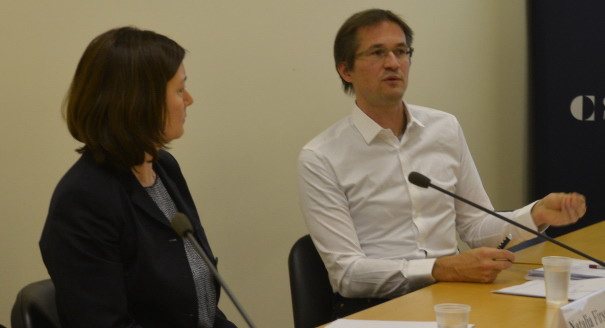Registration
You will receive an email confirming your registration.
Migration and the Syrian refugee crisis continue to affect Europe. How will the EU respond to this challenge?
Speaking at the Carnegie Moscow Center, Gerald Knaus, the Center’s visiting scholar and founding chairman of the European Stability Initiative (ESI), gave an overview of the current debate surrounding the refugee crisis in Germany, other key EU member states, and in EU institutions. He also talked about Turkey’s position and aspirations in this debate on the eve of Turkish elections, and presented the European Stability Initiative’s analysis on what this crisis might mean for the future of the EU and its foreign policy. Carnegie’s Natalia Firsova moderated.
According to Knaus, re-establishing borders across the EU is a counterproductive strategy that threatens to pull the EU apart. Instead, he argued, it is necessary to step up efforts on finding a settlement in Syria because the conflict in this country is the root cause of the current crisis in the EU. Also, it is impossible to resolve the refugee crisis without including Turkey in this process, Knaus added.
Gerald Knaus
Gerald Knaus is a visiting scholar at the Carnegie Moscow Center. He is the founder of the European Stability Initiative (ESI), a Berlin-based think tank working on South East Europe, Turkey, the Caucasus, and EU enlargement.
Natalia Firsova
Natalia Firsova is the associate director of the Carnegie Moscow Center.
